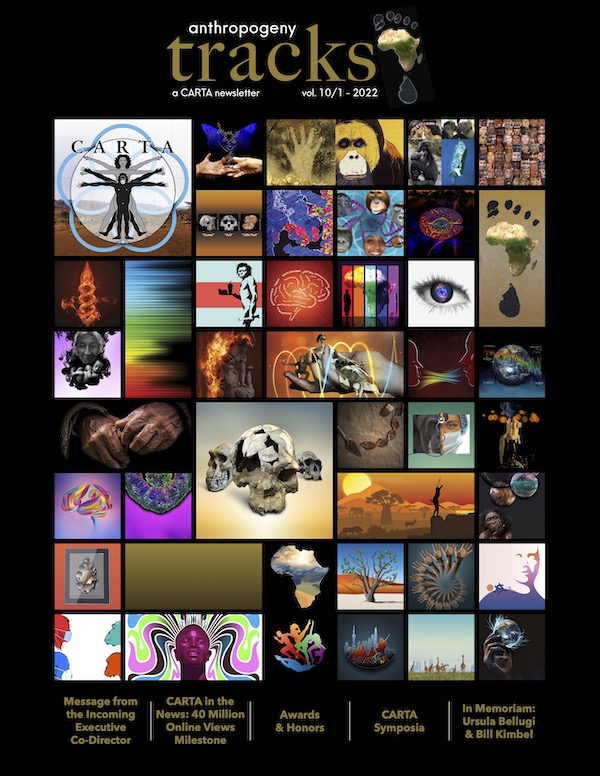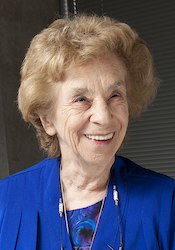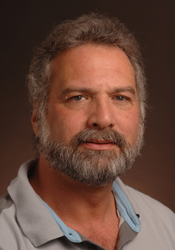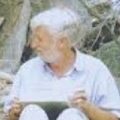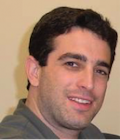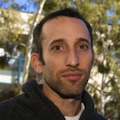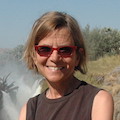"Inside" CARTA's 2022 Mid-Year Digital Newsletter Round-up:
- Message from the Incoming Executive Co-Director
- CARTA Leadership Transition
- 40 Million+ Views of CARTA Symposia Videos
- CARTA 2022 Symposia
- Osher Master Class
- In Memoriam: CARTA Members Ursula Bellugi & Bill Kimbel
- Awards & Honors
- CARTA Member Media
- Support CARTA
- Follow Us on Social Media
After 14 years as CARTA Associate Director, I am humbled by now becoming CARTA’s next Executive Co-Director. I am extremely fortunate to be part of the new CARTA leadership with Katerina Semendeferi (UCSD Anthropology) and Gerald Joyce (Salk) as Co-Directors, as well as Rachel Mayberry (UCSD Linguistics) and Alysson Muotri (UCSD Pediatrics and Stem Cell program) as Associate Directors.
A few weeks ago, we marked the leadership transition with a small, in-person event at the UC San Diego Faculty Club. Our founding Co-Directors Ajit Varki, Fred (“Rusty”) Gage, and Margaret Schoeninger, have grown CARTA into an internationally recognized, virtual organization devoted to exploring and explaining the human phenomenon. The organization now has over 400 members, a diverse group of scientists and scholars who explore various facets of human origins. The 40+ symposia organized over the past 14 years have led to archived videos of over 400 talks, professionally edited by UCSD-TV, and now viewed over 40 million times online by an audience that stretches around the globe.
CARTA adapted quickly to the pandemic and has held the last seven symposia in virtual format. Each of these symposia drew an online audience of over 500. UC San Diego’s Graduate Specialization in Anthropogeny, which I have had the privilege of developing and coordinating, has graduated 35 students with 22 students currently in the program. With help from several generous supporters, CARTA’s Anthropogeny Fellowship Program has provided over 2.1 million dollars in fellowship support to 45 graduate students from the eight participating graduate programs spanning heath, natural and social sciences.
As amply addressed by our last two symposia, The Past, Present and Future of the Anthropocene and Humans: the Planet Altering Ape, we live in a world with numerous existential threats to climate, many ecosystems, and human societies. Some might question why we should devote time and resources contemplating the origin of our species. I am convinced that a better understanding of how we became the paradoxical ape we now are, will inform countless attempts at avoiding future damage and remediating many issues we currently face, from climate crises to how we imagine and contribute to the lives of future generations.
Steam engines were developed just over a dozen generations ago and farming dates to about 600 generations ago, but humans have existed for over 10,000 generations. And these distant ancestors lived in populations that were much closer in size to those of present-day great apes than the over 7 billion humans that now populate the planet. A better understanding of their ways of life, including their ever-increasing capacity to construct their own niches, promises many urgently needed insights into human nature.
Arguably, among the key defining features of “modern” humans are heightened pro-social behavior and empathy, as well as the capacity for the worst cruelty and destructive behavior. Diagnostic human cultural innovations, including language and complex tools, massively amplify what we can do to others in the best and the worst of senses. How our species alone evolved these innovations defines the mission of CARTA and it is with great excitement that I look forward to continuing our transdisciplinary exploration of these and other aspects of human origins.
Fall 2022 will bring a virtual CARTA symposium, Imagining the Future of Anthropogeny, which will feature CARTA’s advisors, both local and external, who will present their visions for anthropogeny and CARTA. We look forward to seeing you at this important event. Meanwhile, the new CARTA leadership is discussing ways to make the most of future combinations of virtual, in-person, and hybrid events.
We very much value your interest, support, and contributions.

Pascal Gagneux, Ph.D.
Executive Co-Director
Center for Academic Research & Training in Anthropogeny

Effective July 1, Pascal Gagneux, former CARTA Associate Director and UC San Diego Professor of Pathology and Anthropology, assumed the role of Executive Co-Director, directing the day-to-day operations and staffing of CARTA. Joining Pascal as Co-Directors are Katerina Semendeferi (Professor of Anthropology and Director of the Laboratory for Human Comparative Neuroanatomy, UC San Diego) and Gerald F. Joyce (Professor and Chief Scientific Officer, Salk Institute).
We also welcome to the CARTA Leadership team our new Associate Directors, Alysson R. Muotri (Professor of Pediatrics and Cellular and Molecular Medicine, UC San Diego) and Rachel Mayberry (Professor of Linguistics and Director of the Laboratory for Multi-Modal Language Development, UC San Diego), and Internal Advisors, Robert Kluender (Professor of Linguistics, UC San Diego) and Carol Marchetto (Assistant Professor of Anthropology, UC San Diego).
In addition, we would like to express our deepest gratitude to our original cohort of Internal and External Advisors who were with us from the start. Without their wisdom, sage advice, and support, CARTA would not be what it is today.
To celebrate the outgoing leaders and welcome the incoming leaders, CARTA held a private local event on June 14, 2022. Read more on the CARTA Leadership Transition page.
In December 2021, CARTA's symposium videos exceeded 40 million online views, a significant milestone in UCSD-TV digital viewership. For those who already enjoy CARTA's public symposia, it will come as no surprise that CARTA ranks as UCTV's most popular "Science" series and their second-most popular series overall. CARTA acknowledges that this success is a direct result of the strong, ongoing partnerships with Salk Institute, San Diego Supercomputer Center (SDSC), UCSD-TV/UCTV, and of course, CARTA Viewers!
Read more in CARTA's news, UC San Diego's feature "CARTA Maps Humanity’s Distinctive Evolution", and SDSC's media "CARTA Achieves Rare Milestone via Key Partnerships".

Join CARTA in 2022 as we continue our physically distanced, yet engaging, CARTA Virtual Symposium Series, through which we explore the origin of humans and the implications for the past, present, and future of our species.
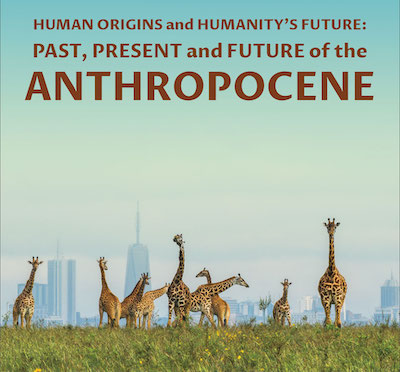
Human Origins and Humanity's Future: Past, Present and Future of the Anthropocene
Saturday, March 5, 2022Event videos available!
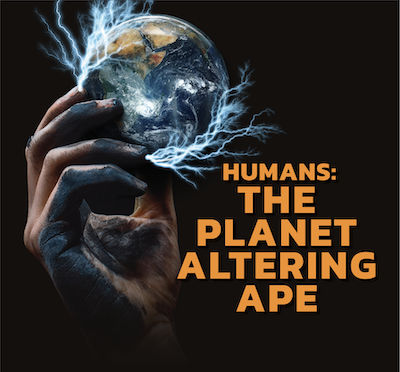
Humans: The Planet Altering Ape
Friday, May 13, 2022Event videos available!
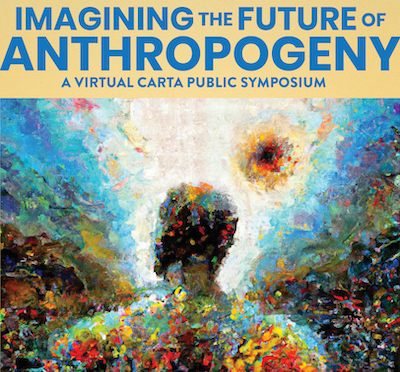
Imagining the Future of Anthropogeny
Saturday, November 19, 2022
During Fall 2022, CARTA Members Charles Kennel, Adena Schachner, Carol Marchetto (CARTA Internal Advisor), Margaret Schoeninger (CARTA Co-Director Emeritus), and Pascal Gagneux (CARTA Executive Co-Director) will share their anthropogeny expertise with the community in the lecture series, "Master Class II: An Anthology of Anthropogeny," offered through UC San Diego Extension's Osher Lifelong Learning Institute.
For registration, those interested can consult Osher's Fall 2022 Quarterly Catalog (not yet available) or the Osher home page. Below are the dates and descriptions of the "Anthology of Anthropogeny" talks.

Charles F. Kennel, Scripps Institution of Oceanography and University of Cambridge
Wednesday, October 12, 10:00 AM – 12:00 PM (Pacific)
"The Coming Crisis of the Anthropocene"
This talk will broadly trace connections between past and present human exploitation of the environment, the coming crisis of the Anthropocene and what we humans can do to alleviate the crisis.
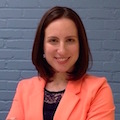
Adena Schachner, University of California, San Diego
Wednesday, October 26, 10:00 AM – 12:00 PM (Pacific)
"Music, Dance, Evolution: The Origins and Consequences of Human Musicality"
Music and dance are cultural universals and begin early in infancy. In this talk, we'll explore the origins of these fundamentally human behaviors, from an evolutionary, cognitive, and developmental perspective. Why can humans move to a beat, while many other species cannot? What can children’s early development tell us about the musical mind? And what consequences does musicality have, for human social and even moral behavior?
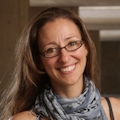
Carol Marchetto, University of California, San Diego
Wednesday, November 9, 10:00 AM – 12:00 PM (Pacific)
"Stem Cells and Human Evolution"
Comparative analyses of brain cells in closely related species can shed light on changes occurring during evolution. The study of post-mortem brains of nonhuman primates (NHPs) has been limited and often does not recapitulate important species-specific developmental hallmarks. This talk will discuss new technology to investigate the development of live neurons from human and nonhuman primates and compare specific cell behaviors such as migration and maturation. We show differential migration patterns in human neural progenitor cells compared to those of chimpanzees and bonobos, suggesting changes related to maturation timing in human neurons. The strategy proposed here lays the groundwork for further comparative analyses between humans and NHPs and opens new avenues for understanding the differences in the neural underpinnings of cognition and neurological disease susceptibility between species.
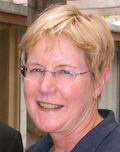
Margaret Schoeninger, University of California, San Diego
Wednesday, November 23, 10:00 AM – 12:00 PM (Pacific)
"Evolution of the Human Diet"
This lecture will discuss the evolution of the human diet in a comparative setting. It will highlight the importance of cultural inventions from hunting prey much larger than ourselves to processing and cooking food. All indications are that humans are now biologically dependent on the cultural practice of cooking.
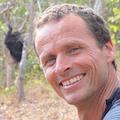
Pascal Gagneux, University of California, San Diego
Wednesday, December 7, 10:00 AM – 12:00 PM (Pacific)
"One Health and Emerging Diseases"
This talk will address the latest insights into the origin of humans and how this single species of primate became a planetary force. I will discuss biological aspects ranging from molecules (e.g., DNA, glycoproteins, antibodies, etc.) to societies (e.g., nature deficit syndrome, habitat destruction, field biology, agricultural and medical practice, and emerging diseases).
The notion of "One Health," a holistic approach to the health of ecosystems, non-human animal species and humans, is getting a lot of traction. The ongoing COVID-19 pandemic and the more recent monkey pox out-outbreak are just two examples of spill-over infections and the countless ways in which human activities affect health at a planetary level. The combination of climate change, the need to feed 9 billion people, large scale ecological disturbance, injustice and inequity, and global mobility leave us with many difficult decisions if we hope to prevent future emerging diseases.
External Awards & Honors
The following external awards and honors were received by CARTA Members and shared with us since our last newsletter. You may learn more about each CARTA Member by clicking on their name to view their full CARTA profile.

Jean-Pierre Changeux, Collège de France & Institut Pasteur
selected as Clarivate Leader in 2021 for Physiology and Medicine and featured in Citation Laureate Spotlight

Charles F. Kennel, Scripps Institution of Oceanography and University of Cambridge
elected as 2022 Fellow Commoner of Christ's College, Cambridge

Carol Marchetto, University of California, San Diego
1) Larry L. Hillblom Foundation (Marchetto, Co-PI); 01/01/2021-12/31/2024; The marmoset as a model of aging and of age-related neurodegenerative disease. 2) UCSD Academic Senate Grant (Marchetto, PI); 02/28/22-02-28/23; Probing the Role of Histone Serotonylation in Autism Spectrum Disorder.
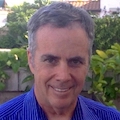
Victor Nizet, University of California, San Diego
received the 2022 D.C. White Award for Interdisciplinary Research from the American Society for Microbiology
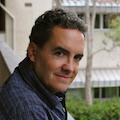
Rafael Núñez, University of California, San Diego
elected as a lifetime fellow of the Cognitive Science Society

Terrance Sejnowski, Salk Institute for Biological Studies
received the 2022 Gruber Neuroscience Prize

Ajit Varki, University of California, San Diego School of Medicine
received the 2023 Herbert Tabor Research Award from the American Society for Biochemistry and Molecular Biology (ASBMB)
CARTA Members Elected as Fellows of AAAS in 2021
In November 2021, the AAAS Council elected 564 members as Fellows of AAAS. Election as a Fellow honors members whose efforts on behalf of the advancement of science or its applications in service to society have distinguished them among their peers and colleagues.
Please join CARTA in congratulating these outstanding individuals on their distinguished service.
Graduate Fellowships
It is CARTA's great pleasure to announce the awarding of the Annette Merle-Smith Fellowships and the CARTA Fellowships in Anthropogeny for 2022-23. Congratulations to all our scholars and thank you to our generous sponsors, especially Mrs. Annette Merle-Smith, who have made their studies possible! You may learn more about each student by clicking on their name to view their full CARTA profile.
Read more about the history of these Fellowship Programs and browse our past awardees. We invite you to also learn more about UC San Diego's "Faculty of Anthropogeny," which includes CARTA members and local experts and offers the one-of-a-kind trans-disciplinary Graduate Specialization in Anthropogeny.
2022-2023 Annette Merle-Smith Fellows
2022-2023 CARTA Fellows
Below is a selection of recent publications and media stories from our CARTA members:
 Michael Baker: LaFee, S., 2022. A Fish Story with a Human Tell: Elephant sharks offer a novel perspective on how humans evolved. UC San Diego News Center, 17 February.
Michael Baker: LaFee, S., 2022. A Fish Story with a Human Tell: Elephant sharks offer a novel perspective on how humans evolved. UC San Diego News Center, 17 February.
- Barry Bogin: Bogin, B. 2022. Guest post: “Carleton Coon made me do it.” Anthropomics Blog, 13 April.
- Keolu Fox: Hutchison, N., 2022. Keolu Fox: Decoding the past to build a better future. NationalGeographic.com Impact, 12 May.
- Tony Hunter: Hunter, T., 2021. My biochemical journey from a Cambridge undergraduate to the discovery of phosphotyrosine. The Biochemist, 43(6):74-77.
- Aniruddh Patel: ARCS San Diego talk, March 01, 2022 (YouTube Video).
- Herman Pontzer: Gibbons, A., 2022. The calorie counter: Evolutionary anthropologist Herman Pontzer busts myths about how humans burn calories—and why. Science, 375(6582): 710-713.
CARTA’s quest to explore and explain the human phenomenon is shared by many across the globe, and CARTA connects us all – scientists and philosophers, students and teachers, people with questions and others with answers. Through access to free UCSD-TV broadcasts and archived videos on multiple websites, the global CARTA community grows with each lecture that is experienced and passed forward. Help us preserve this free flow of information about what it means to be human. Your one-time or recurring donation of $20, $35, $50 or more helps us to keep CARTA’s symposia free for all to attend and view online. Contact Jesse Robie (858-246-0846 or jrobie@health.ucsd.edu) for more details regarding how you can support CARTA's mission.
Click the button below to begin your 100% tax-deductible donation:
Connect via social media with CARTA enthusiasts and members from around the world.
